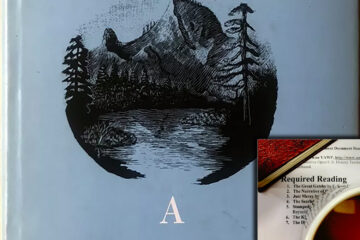“When I Heard the Learn’d Astronomer” by Walt Whitman
When I heard the learn’d astronomer,
When the proofs, the figures, were ranged in columns before me,
When I was shown the charts and diagrams, to add, divide, and measure them,
When I sitting heard the astronomer where he lectured with much applause in the lecture-room, How soon unaccountable I became tired and sick,
Till rising and gliding out I wander’d off by myself, In the mystical moist night-air, and from time to time, Look’d up in perfect silence at the stars.
Analysis by Haddon Buschmann
Walt Whitman’s free verse poem, “When I Heard the Learn’d Astronomer,” compares scientific knowledge and facts to experience and reality. The speaker attends a lecture by a “learn’d astronomer,” which implies that the astronomer is a well-educated expert in the field of astronomy. The speaker takes the time to go to the lesson, and this means he wanted to learn something about astronomy. In this lecture, the speaker studied information about stars laid out in “proofs,” “figures,” and “columns,” (2) and “was shown charts and diagrams” (3). While the audience praised the lecture “with much applause,” (4) the speaker felt “tired and sick” (5).
While describing the lecture, the speaker lacks emotion and figurative language, which shows his apathy towards it. The speaker leaves the lecture and experiences the stars first-hand instead of listening to someone talk about them. The speaker was unable to sum up the “mystical” (7) power of the universe in numbers and letters. They had to detach themselves from the given knowledge and confront nature face to face. The poem demonstrates the idea of
transcendentalism as the speaker experiences a power and beauty within nature that cannot be explained by anyone.
A shift occurs between the fourth and fifth lines of the poem. In the first four lines, the speaker uses an anaphora by having all the lines start with “When” until he finds something new and more immersive by leaving the lecture. While the speaker is feeling suffocated and overwhelmed in his atmosphere, this anaphora causes the reader to feel the same way every line. This symbolizes how a lecture is incessant and repetitive, making the speaker “tired and sick” (5) of listening to someone cramming knowledge into their head instead of experiencing it. The speaker intentionally drags out each line longer as the poem progresses, and the fourth line is the longest before a shift occurs, and he abruptly “glides out” (6) of the lecture hall. This emphasizes his feeling of boredom as his patience wanes and as the lecture seems never-ending. The last four lines of the poem are shorter than the first, representing the simplicity of the speaker’s journey.
The speaker is amazed at the “mystical most night-air” (7) ashe gazes “in perfect silence at the stars” (8).Their language changes from a scientific perspective during the lecture to more of a romantic view as he observes the world. The speaker explains how he watches the sky “in perfect silence” (8). This directly contrasts the nature of a lecture, which is a person talking for long periods of time.Also, this explains the significance of individuality in order to experience and gain a profound understanding of the universe because everybody’s interpretation of nature is different. By describing the experience as “perfect” he points out how facts and knowledge about a topic are imperfect and cannot effectively encapsulate the meaning of nature the same way experiencing and seeing it can.


